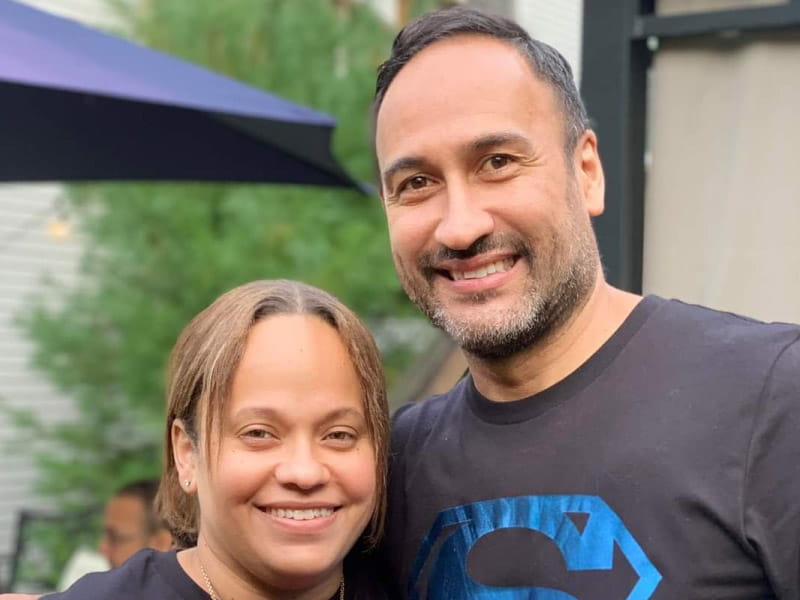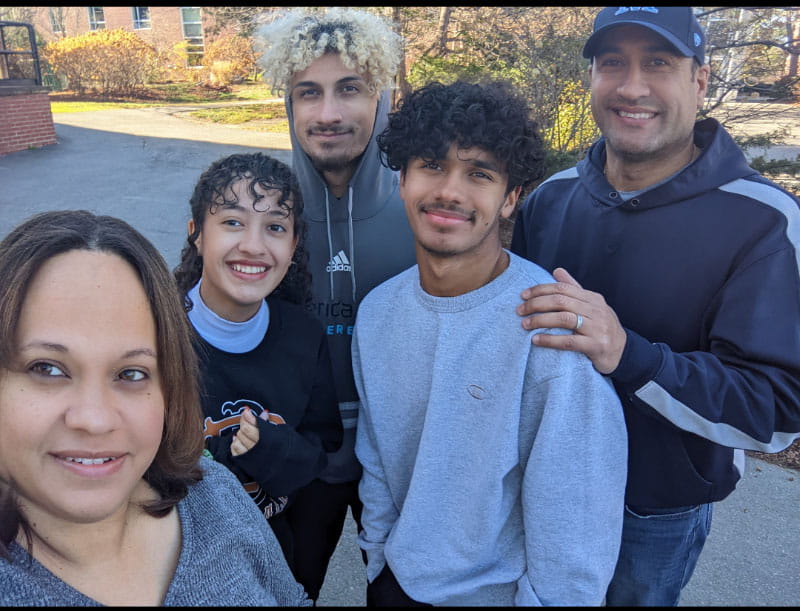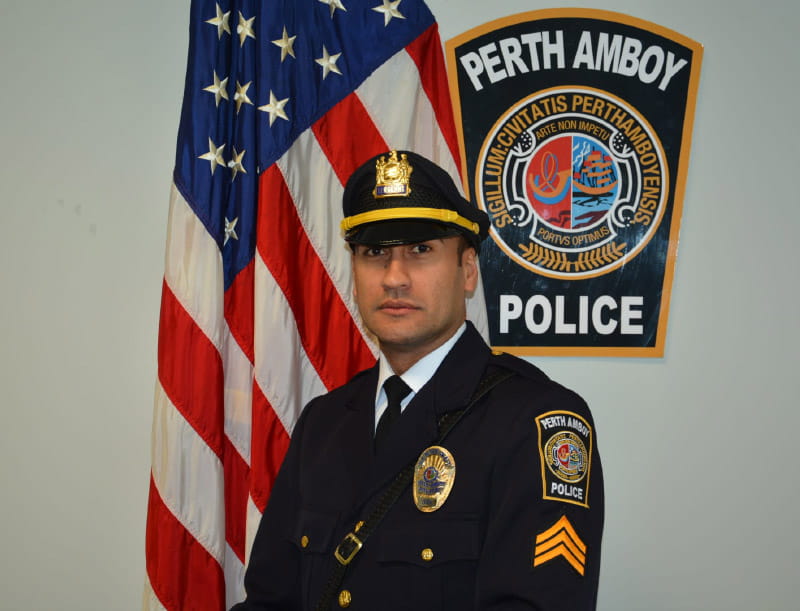
After another emotional day investigating domestic violence and child abuse cases in Perth Amboy, New Jersey, Rafaelito Cruz sat down to dinner with his wife and two of his three children.
After the meal, the 51-year-old special victims unit detective sergeant lingered by the family piano. His son Julian, 18, was teaching himself how to play the song “Unchained Melody.”
“Wow, Julian, that’s beautiful,” Rafaelito said. “I can’t wait until you learn the whole thing.” Soon after, Rafaelito and his wife, MiLinda, went to bed.
At 3 a.m., Rafaelito was breathing so loud and fast that he awoke MiLinda. Thinking he was having a nightmare, she gently tapped his arm.
“Baby, wake up,” she said.
Rafaelito didn’t budge. She shook him harder. His body felt tense, clenched.
MiLinda flipped on the nightstand lamp. Rafaelito’s face was pale and his lips were tinged blue. MiLinda grabbed her phone and dialed 911.
She unlocked their front door for first responders, then ran back to their bedroom. Rafaelito’s breathing slowed. Then it stopped. MiLinda started CPR.
“What’s happening?” the dispatcher asked.
“I can’t hear his heartbeat,” MiLinda responded.
“Do you know CPR?” said the dispatcher. “I can instruct you.”
“I’m already doing it!” she said.
MiLinda continued chest compressions until first responders arrived. It was a skill she picked up at a CPR class she took over 20 years ago.
When Barnegat Township Police Department officers arrived, they shocked Rafaelito three times with an automated external defibrillator, or AED. His children Julian and Jaylisse, 16, comforted each other in Jaylisse’s room as the officers, and then EMTs, worked on him. Finally, Rafaelito’s pulse came back.
In the emergency room at Community Medical Center, an RWJBarnabas Health facility in Toms River, doctors put him into an induced coma and chilled his body in hopes of preserving his brain function.
MiLinda called their oldest child, Ralph, 22, who was away at college. Rafaelito’s police department paid to fly Ralph home that night. He joined Julian, Jaylisse and MiLinda by Rafaelito’s bedside.
“Daddy, please wake up,” Julian said. “I want to play you that whole song.”
The next day, while still in the coma, Rafaelito’s blood pressure plummeted. MiLinda wouldn’t leave his side. Doctors started talking to her about organ donation.
When he stabilized, nurses convinced her she needed to eat and rest. She went home for a few hours. Upon returning to the hospital, a nurse turned to Rafaelito and said: “Look who came to see you.”
He opened his eyes.
Rafaelito had woken up two hours earlier, but the nurse, knowing MiLinda would return soon, saved the news.
Tears spilled down MiLinda’s cheeks. When she told friends, family and co-workers in the hospital waiting room that he was awake, a cheer erupted.

Tests showed Rafaelito had a myocardial bridge, a typically harmless condition where one or more coronary arteries go through the heart muscle rather than lie on its surface. It wasn’t clear if that played a part in his cardiac arrest.
Stress may have contributed, his doctors suggested. Rafaelito had recently worked a tough case involving an infant who passed away.
Rafaelito’s cardiologist assured him his arteries weren’t clogged. He’d experienced only an “electrical” problem with his heart – he didn’t have a plumbing problem. “Oh, good,” Rafaelito said, cracking a smile. “I can still have fried chicken.”
Days later, Rafaelito had a defibrillator implanted in his chest. The device can shock his heart into a normal rhythm if needed.
Shortly after arriving home, Rafaelito teared up as Julian impeccably played “Unchained Melody” in its entirety on the piano.
On Feb. 5, five months after his cardiac arrest, Rafaelito returned to work. He hadn’t told many co-workers he was coming back. The day was filled with surprised faces, well wishes, hugs and tears. “It was pretty amazing,” he said.

Across Rafaelito’s career spanning over 20 years of police work, he’s been recognized for pulling people from burning buildings and saving them from gas leaks. Now, MiLinda joins her husband as a hero.
After their experience, the family has made it their mission to spread awareness about the importance of quick action and CPR. “Call 911 as soon as you can,” MiLinda said. “You can save a life.”
MiLinda, for her part, has had nightmares about the evening her husband’s heart stopped. At first, she binged on Netflix to stay awake so she could watch him sleep. Now, she takes solace in his defibrillator. The family plans to start therapy, too.
“He catches me just looking at him sometimes,” MiLinda said. “I still can’t believe he’s here. We look at life a little differently now, and we appreciate those teeny tiny moments.”
Stories From the Heart chronicles the inspiring journeys of heart disease and stroke survivors, caregivers and advocates.





